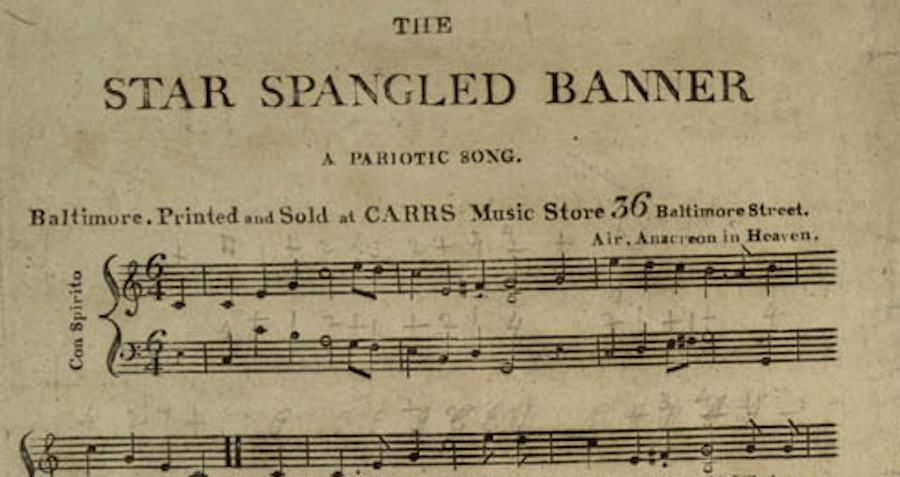
“The Star-Spangled Banner” gained popularity throughout the 19th century, competing with “Hail, Columbia,” a song written by Philip Phile in 1789 George Washington’s inauguration, as a national anthem. “Key was furious and indicted the newspaper for intending ‘to injure, oppress, aggrieve & vilify the good name, fame, credit & reputation of the Magistrates & constables of Washington County.'” So, basically, his anger resembles that of the people who call Kaepernick unpatriotic and ungrateful to law enforcement and the military. and indicted an abolitionist newspaper for their report on how local police were attacking black residents. Years later, Key was a district attorney for Washington, D.C. The three remaining verses are a little more focused on the violence of the battle, and one couplet has been highlighted by many defending Kaepernick’s protest: “No refuge could save the hireling and slave/ From the terror of flight, or the gloom of the grave.” As the Intercept reports, many American slaves fled from their owners and joined the British in the war, and Key, himself a slave owner, seemingly reveled in the deaths of those on the English side. The version currently performed at sporting events only uses the first verse of Key’s original poem. It was called “When the Warrior Returns.” He wrote it in 1805 and it included the lyrics, ” And pale beamed the Crescent, its splendor obscured/By the light of the star-spangled flag of our nation.” Key had previously used the melody for his tribute to soldiers of the Barbary Wars, which were fought between the United States and several countries in the Ottoman Empire’s hold on northern Africa. He put the words to the tune of “To Anacreon in Heaven,” which originated in an 18th-century London social club as a tribute to a Greek poet known for his drinking songs.


14, 1814, he saw that the country’s flag was still flying above Fort McHenry, inspiring him to write the poem “Defence of Fort M’Henry.” It was published in a newspaper and, with Key’s assistance, adapted into a song by publisher Thomas Carr.

Lawyer Francis Scott Key, aboard a British ship in an effort to negotiate the release of an imprisoned American doctor, watched as the city was bombarded with rockets.

The song’s origins come from the War of 1812, specifically the Battle of Baltimore in 1814. He’s been called everything from a hero to a traitor, along with some very ugly racial slurs, and while so many people have an opinion on what this backup quarterback does, we wonder how many people know the history of our national anthem and why it’s become a pre-game staple at every sporting event.


 0 kommentar(er)
0 kommentar(er)
